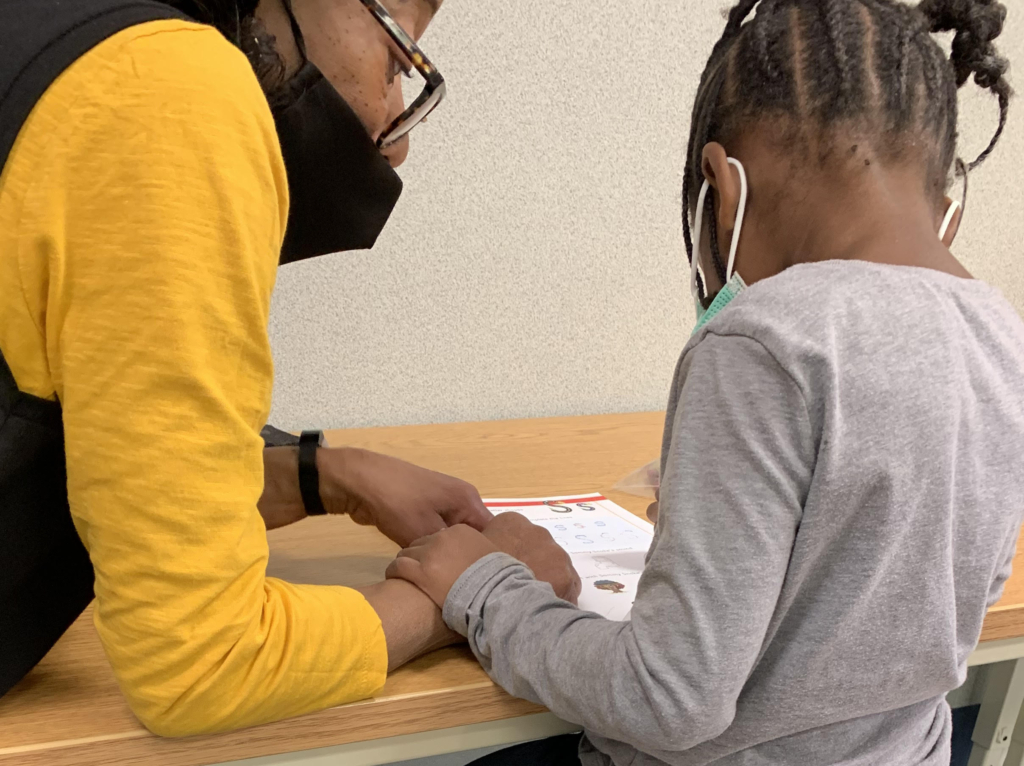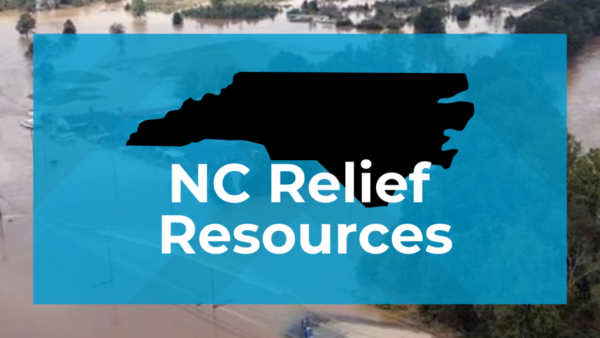New Year, New Roles at NC Education Corps

Students across North Carolina are benefiting from their schools’ partnership with North Carolina Education Corps, as community members provide the support K-3 students need to gain ground in reading and thrive in school.
Launched in September 2020 as a partnership between the North Carolina State Board of Education, the Office of the Governor, local school systems, and the North Carolina Commission on Volunteerism and Community Service, NC Education Corps exists to eliminate obstacles to opportunity by offering quality academic support to students from caring adults who work for their community’s schools.
During the 2021-2022 school year, North Carolina Education Corps members serve as high-impact, early-grades literacy tutors, providing personalized instruction grounded in the science of reading and extending the work of teachers. Active corps members include community college and university students as well as recent graduates, community members at large, and retired educators.
To help schools fill these valued positions, NCEC develops candidates who are passionate about offering high-dosage tutoring during the school day—meeting groups of one to three students at a time, three times a week, for at least 30 minutes per session.
Prior to the pandemic, national data showed that 36% of North Carolina’s fourth-graders were reading at or above grade level. State results for the past two years show young readers in North Carolina falling even further behind due to lost instructional time and added stressors.
NC Education Corps is seeking students, professionals, and retirees to help meet this growing need now and fill open roles for the 2021-22 school year in Wake, Guilford, Cumberland, Martin, Halifax, Hertford, Northampton, Bladen, Scotland, Vance, Ashe, and Catawba counties.
To learn more and apply to become a corps member for your community’s schools, visit www.nceducationcorps.org/application.
The exacerbation of opportunity gaps that existed before the pandemic has activated educators statewide and increased the urgency of ensuring that every K-3 reader has access to the academic and social-emotional support they need to thrive.
“We just can’t overstate the importance of learning to read for success in school and beyond, and the data from last year are a sobering reminder of the challenge we face, especially in the early grades,” said State Superintendent of Public Instruction Catherine Truitt. “Many students lost ground because of COVID-19, and schools across the state welcome the help from the North Carolina Education Corps for the extra support, grounded in the science of reading, that many young students now need to become proficient readers.”
NCEC is an independent non-profit, supported by a public-private partnership that includes the C.D. Spangler Foundation, Mebane Foundation, and SECU Foundation.
“North Carolinians are coming together to accelerate learning recovery in the wake of the pandemic,” said John-Paul Smith, Executive Director of NCEC. “They are coming together to close education opportunity gaps that have been around for far too long. We are grateful for the perseverance and spirit of hardworking, service-minded people across the state, and we invite North Carolina residents to step up to give teachers and students the critical help they deserve.”
Here again is the link to learn more and apply: www.nceducationcorps.org/application.



